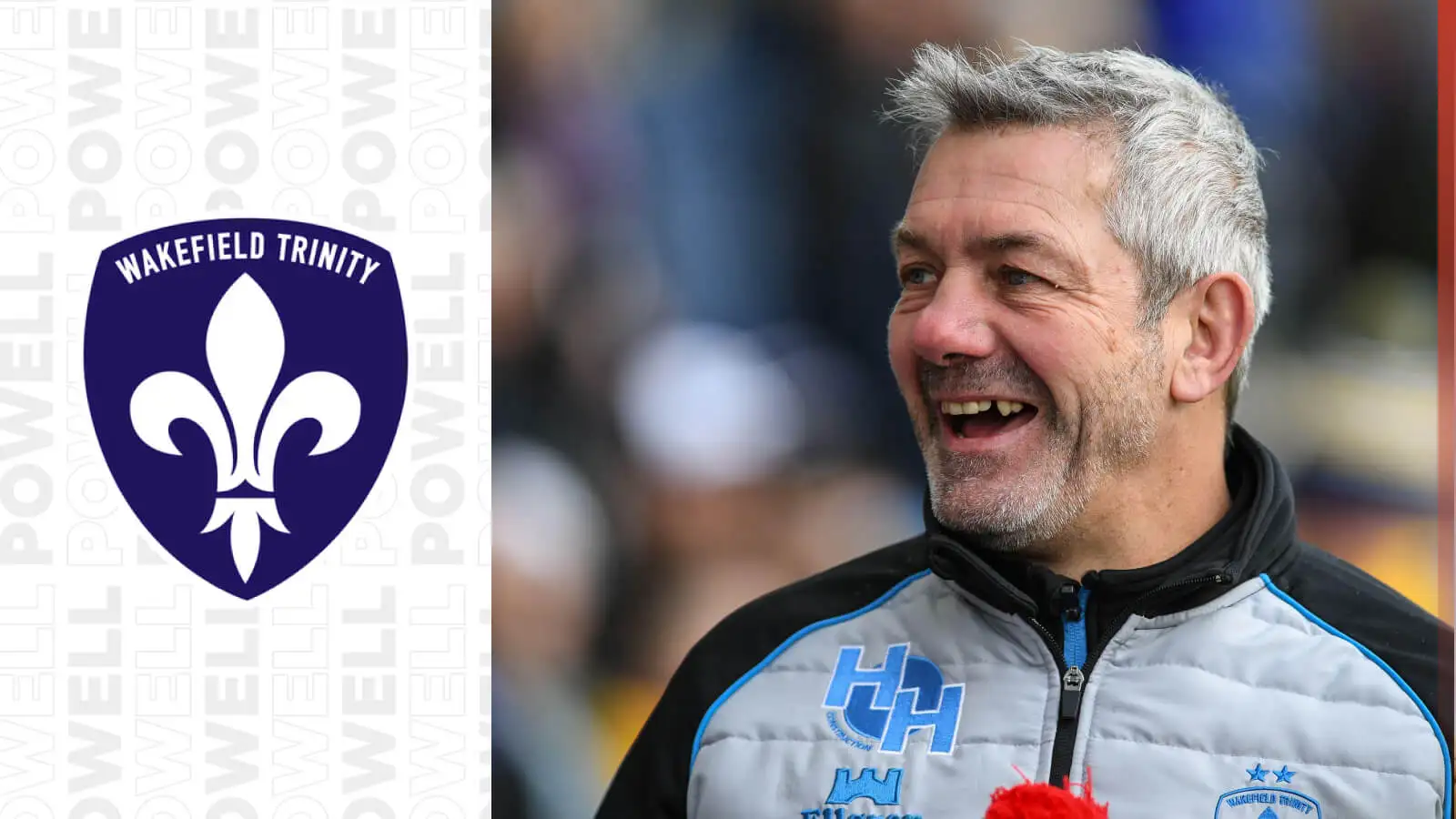Inside Daryl Powell’s rebuild at Wakefield Trinity, including key staff additions, style of play and player development

Wakefield Trinity head coach Daryl Powell - Alamy
Without an impromptu text message and a meet-up in the offices of a kitchen warehouse on an industrial estate in Pontefract, the story of Daryl Powell and Wakefield Trinity may not have even started.
While Matt Ellis’ takeover was still in the final stages of being approved, he had already decided what his first big act would be as owner.
As a long-time Trinity supporter, he had watched Powell enjoy success at Castleford Tigers and Featherstone Rovers, and decided there was only one man who could lead his rebuild.
There was some talk of whether the bruising nature of Powell’s exit from Warrington Wolves last summer meant we would ever see him in a head coaching position again – but if there was ever a job that was going to tempt him to jump back in quickly, it was probably Wakefield, with Ellis’ significant financial backing.
Powell’s bread and butter – the type of job that excites him the most – is one like this. A complete rebuild; the chance to start something from the ground up.
It is the situation that has yielded him the most success throughout his coaching career, at clubs like Featherstone and Castleford. With the new Championship season approaching, Powell has tried to transform Wakefield on the field, as well as off it.
This is the inside story on the changes he has made to ensure Wakefield bounce back from a disappointing 2023.
Bringing a ‘family feel’ to the club
“The biggest and first thing you notice when you start working with Daryl is how he wants to improve you as a person, as well as a player,” one senior member of staff at Wakefield tells Love Rugby League.
“Obviously players have potential that we all want them to fulfil but he’s always been adamant that’s the same for staff, too. No matter what your job is, Daryl will try and ensure he squeezes every drop out of you and that has a knock-on impact around the place.
“It’s great for a club if players are playing to their potential but if the staff are doing that too, it drips onto the training field every day.”
Those close to Powell have also revealed how one of his first priorities was to bring more of a ‘family feel’ to Wakefield day-to-day, with the players encouraged to socialise with one another and develop bonds and relationships.
The goal there? To produce a tight-knit group who will go above and beyond for each other in the pivotal moments on the field.
Key staff additions
 Michael Shenton has joined Wakefield as an assistant coach – Alamy
Michael Shenton has joined Wakefield as an assistant coach – Alamy
Powell’s staff has a familiar feel to it for the most part, particularly if you remember the success he had at Castleford.
Michael Shenton, his loyal captain at Castleford, is now his assistant, while Ben Cooper has left Hull KR to link back up with Powell and head up the strength and conditioning team.
There is another familiar face in Ste Mills, Powell’s head of analysis at Castleford and Warrington and a fierce ally during his highest and lowest moments during coaching. Mills is now heading up Trinity’s recruitment with complete support from Powell and new owner Ellis.
But one main difference is the addition of modern-day Trinity legend Danny Kirmond. Those close to the camp at Wakefield have spoke positively about Kirmond, and the fact that he is a player who understands the club more than most. He has been an integral part of pre-season and readying the players for their battle to get back into Super League at the first attempt.
Powell believes Kirmond will be a head coach in the future, and just like his players, is keen to develop his young assistants and prime them for a bright future.
A sizeable off-season turnover of players has led to the morphing of a squad in Powell’s identity. The big question will be whether the Wakefield of 2024 can replicate the style of rugby Powell became renowned for just down the road at Castleford; eye-catching and entertaining.
Style of play and player development
“He’s given us licence to play,” Trinity forward, Jay Pitts, says. “We’ve got the reason to play but we’ve got to make sure we earn that right, too.
“We’ve got a very open style of play with a lot of technical side to it too, to understand why we’re doing it. We’re going to move the ball around, we’re going to play but we’ll get the balance right, too.”
At 34, Pitts is one of the most senior players in Powell’s new-look squad. But he believes another strength of Powell’s is his desire to ensure every player – irrespective of their age – blossoms under his leadership.
“He’s really big on developing players, no matter of age or whoever they are,” he admits. “If you’re the youngest lad in the squad or a senior player, he’s really wanting to make sure everyone hits their potential.
“He’s a big believer that we can all improve no matter our age, and we can all get better individually which helps the team.
“He’s very big on the small details and his coaching background means he’s worked with a hell of a lot of players. We’re really grateful that he’s here to take us on this journey.”